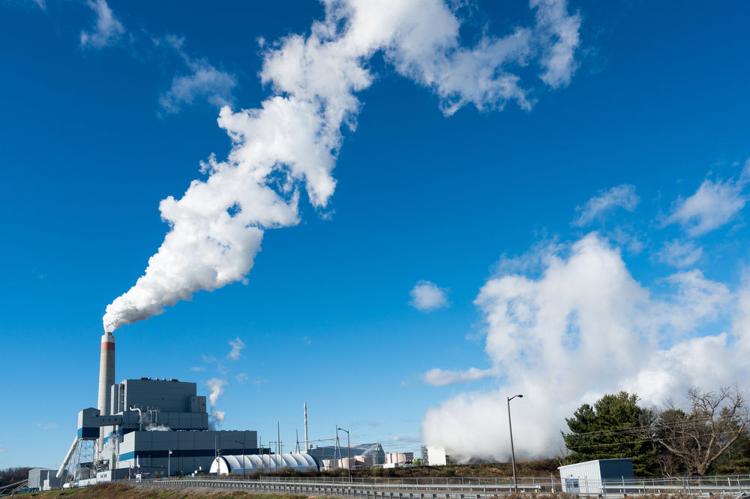Business groups leery of Virginia joining regional greenhouse gas cap-and-trade program

Shutterstock photo
(The Center Square) – Virginia’s entry into the Regional Greenhouse Gas Initiative (RGGI) – a multistate program designed to reduce greenhouse gasses through a cap-and-trade policy – is causing concern for some business groups and free-market advocates.
The cap-and-trade program puts a limit on how much carbon an entity can emit, but allows them to purchase a greater capacity for carbon emission from companies that emit a lower amount than the limit. The RGGI agreement requires states to commit to lowering the state’s overall carbon footprint, and entities that do not follow the rules could face fines.
The Virginia State Corporation Commission estimates this could cost the average Virginian about $144 a year in additional costs, and some critics have classified it as a new tax.
“At its heart, RGGI is just a carbon tax,” Stephen Haner, a senior fellow for state and local tax policy at the free-market Thomas Jefferson Institute for Public Policy told The Center Square.
“It is imposed on utility companies, but it will be paid by their customers,” Haner said. “The goal is to raise the cost of fossil fuels to make the renewable choices seem less expensive. Virginia’s carbon emissions from power generation are already dropping, and will drop the same amount with or without RGGI, so the only point of the RGGI scheme is to collect $100 million more from the pockets of Virginia’s businesses and residents.”
Brett Vassey, the president of the Virginia Manufacturers Association, told The Center Square, the policy will harm thousands of energy-intensive companies, which are primarily industrial companies, low-income Virginians and those on a fixed income. He said it will have a negative effect on the economy overall.
“It’s not speculation. It will deteriorate the industrial base,” Vassey said. “Just look at the net job losses from energy intensive businesses in the RGGI states since RGGI started. That is our future. … When electricity prices go up, where are the 380,000 unemployed Virginians going to get more money? Same for businesses that had the government slow or stop their businesses. It’s just another tax burden on consumers dressed up as [environmentalism].”
Nicole Riley, the Virginia State Director for the National Federation of Independent Business, expressed similar concerns. In a phone interview, Riley cited a Cato Institute study that showed the negative effects RGGI had on members, which included jobs leaving for other states and higher costs on electric bills.
Along with manufacturers, Riley said entry into RGGI will hurt data centers, grocery stores that use refrigerators and freezers and other businesses. She said these costs ultimately trickle down to the consumer.
Riley cautioned policies like this one put Virginia at a disadvantage when competing with other states and will negatively affect the overall business climate.
In a news release last week announcing Virginia had joined RGGI, Gov. Ralph Northam said the program will be beneficial to the economy.
“As the southernmost state to join RGGI, Virginia is sending a powerful signal that our Commonwealth is committed to fighting climate change and securing a clean energy future,” Northam said. “This initiative provides a unique opportunity to meet the urgency of the environmental threats facing our planet, while positioning Virginia as a center of economic activity in the transition to renewable energy. Our Commonwealth is ready to lead the way in ensuring that the path to reducing carbon emissions is equitable and protects the health and safety of all Virginians.”
The governor’s office did not respond to a request for comment from The Center Square about concerns from the business community.
The other states involved in RGGI are Connecticut, Delaware, Maine, Maryland, Massachusetts, New Hampshire, New Jersey, New York, Rhode Island and Vermont.

